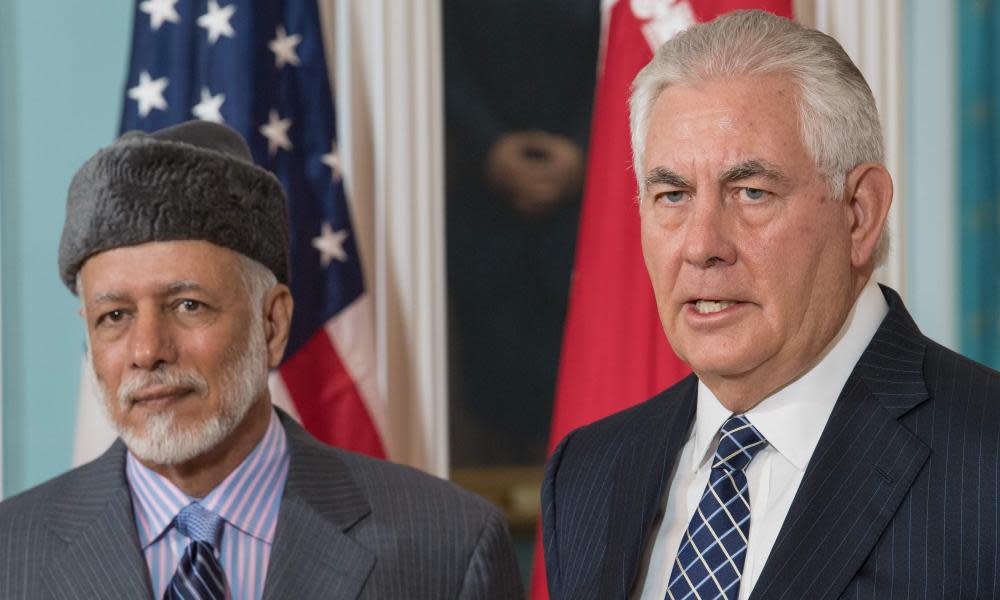Rex Tillerson says Qatar's Gulf neighbours should lift blockade

The US secretary of state, Rex Tillerson, has tried to push Qatar’s Gulf neighbours back to the negotiating table, saying it was time for them to take some positive action by lifting their economic blockade on the oil-rich state.
Tillerson said Saudi-led efforts to isolate Qatar were having a negative effect on the Qatari people, adding: “I hope as a sign of good faith they will lift that blockade. That would be a positive development.”
His remarks represent the clearest reproach to Saudi Arabia, the United Arab Emirates, Egypt and Bahrain since the dispute began in June, and – even if Tillerson may sympathise with some of their motives – leaves their anti-Qatar alliance scrambling for a new diplomatic strategy.
The UAE this week said it expected a prolonged stalemate in the dispute and gave no hint it would be willing to left the blockade to allow talks to start.
The four states had been relying on the support of Donald Trump, but Tillerson is unlikely to have made such clear remarks unless he was increasingly confident his view was now the dominant opinion in Washington.
Last week, Tillerson praised Qatar for becoming the first state in the region to sign a new memorandum of understanding with Washington on tracking the flow of terrorist financing.
Speaking in Washington on Friday, he said Qatar had been “very aggressive” in implementing the agreement to address concerns over terrorism and terror financing.
“So we are satisfied with the effort they are putting it forward,” Tillerson said. “I think they have also indicated a willingness to sit with the four parties and negotiate and discuss the four demands. They have indicated that the sovereignty and dignity of all five countries most be preserved.”
Tillerson said it would be “a good sign” if the four countries lifted their blockade, which has closed most air routes, as well as the Qatar’s only land border, and forced it to arrange emergency food shipments from elsewhere.
Tillerson’s remarks came in a meeting with the Oman foreign minister, Yusuf bin Alawi bin Abdullah.
On Friday, the UAE state minister for foreign affairs, Anwar Gargash, welcomed the latest Qatar move to counter terrorism.
“It is a positive step to deal seriously with the list of 59 terrorists,” Gargash tweeted. “The pressure linked to the crisis has begun to bear fruit.”
But he repeated his demands for Qatar to reorient its policies in order to ease the crisis with its Arab neighbours. “It would be wiser [for Qatar] to totally change its (political) orientation,” he said.
The four countries have tried to strengthen their diplomatic standing in Washington in recent days by highlighting six principle demands, as opposed to a previous maximalist set of 13 demands tabled in private and subsequently leaked.
France, Germany and the UK have each sent diplomats to the Gulf in an effort to mediate, and the UK has offered to act a guarantor of any agreement. A previous deal designed to rein in Qatar’s independent foreign policy, as well as the Doha-funded broadcaster al-Jazeera signed in 2013 was broken by Qatar, the other Gulf states claim, so requiring any new deal to be monitored by a third party.
The Turkish president, Recep Tayyip Erdoğan, who is allied with Qatar is scheduled to visit the region this weekend.
A US State Department 2016 review of worldwide terrorism produced this week made hardly any criticism of Qatar’s efforts to defeat terrorism but ironically was more critical of Saudi.

 Yahoo News
Yahoo News 
